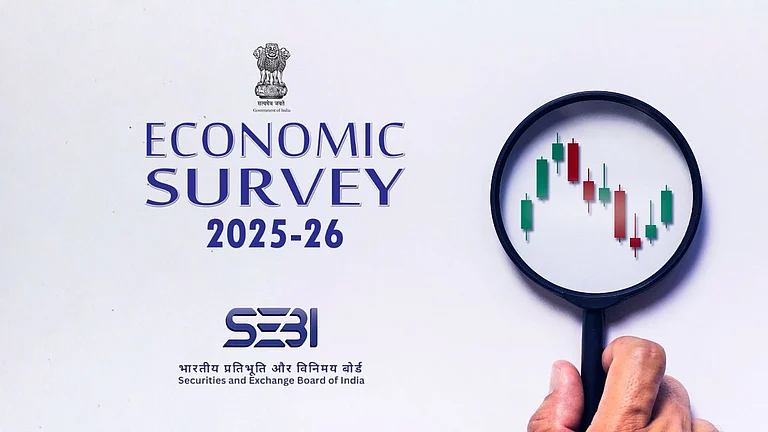
Summary of this article
SEBI scrapped the old B-30 incentive and replaced it with a targeted, capped additional commission of up to ₹2,000 for distributors.
The framework now incentivizes bringing in new individual investors (with new PANs) from B-30 cities and new women investors from any location.
The commission is funded by the AMCs' Investor Education Fund, includes claw-back provisions, and bans dual incentives to prevent transaction churning and misuse.
Capital market regulator, the Securities and Exchange Board of India (Sebi) has amended the Regulation 52(6A)(b) of the (Mutual Funds) Regulations 1996 in a circular dated November 28, 2025. The regulation seeks to increase retail participation from cities beyond the top 30 cities (B-30).
Notably, the top 30 cities refer to those cities which make up the highest concentration of the mutual fund industry's assets under management (AUM). However, the market watchdog highlighted concerns of misuse regarding the framework.
Sebi has deleted the previous provision and has introduced new provisions for boosting retail participation. Under the new structure, mutual fund distributors will receive additional commissions for onboarding new individual investors (new Permanent Account Number or PAN) from B-30 cities and for onboarding new women investors from both B-30 and top 30 cities.
“Due to concerns of misuse of this framework, based on the feedback received from the industry, it has been decided to revise the incentive structure for distributors for bringing in new investment/ inflows in mutual funds. Therefore, vide gazette notification dated October 31, 2025, the Regulation 52(6A)(b) of the SEBI (Mutual Funds) Regulations 1996 has been deleted,” Sebi said.
How Does The New Framework Work
To reduce mis-selling and misuse of the framework, Sebi has mandated that the incentive for lump-sum investments will be fixed at 1 per cent of the amount of the first application. However, the incentive cannot exceed Rs 2,000 and will only be given to the distributor if the investor remains invested for a minimum of one year.
On the other hand, the incentive for systematic investment plan (SIP) will not exceed 1 per cent of the total investment made during the first year, subject to a maximum incentive of Rs 2,000. Sebi added that the additional distribution commission will be paid along with the existing trail commission they receive from the scheme. Notably, asset management companies (AMCs) have to set apart a fund for investor education, awareness, and financial inclusion initiatives, and the incentive will be paid from this fund.
Sebi’s Move To Curb Mis-Selling
Sebi has said that in order to curb mis-selling and misuse, the incentive cannot be claimed for the same investor or investment. For instance, a distributor cannot claim the B-30 commission and the women investor commission for the same investment by a woman investor from a B-30 city.
Additionally, incentives will not be given for certain schemes such as exchange-traded funds (ETFs), fund of funds (domestic) with more than 80 per cent of AUMs invested in domestic funds and schemes which have a duration which is less than one year, such as overnight funds, liquid fund, ultrashort duration fund; and low duration fund. Notably, the provisions of this circular will come into effect from February 1, 2026.
Sebi chairman, Tuhin Kanta Pandey has also highlighted the gap between investor awareness and investor participation in his recent speeches. Sebi’s move to revise incentives for boosting participation are a part of the market regulator’s overall initiative to include financial inclusion in the Indian securities market. According to a recent survey by the NSE, while 63 per cent of Indian households are aware of securities market products, only 9.50 per cent are actually investing in them. The move also targets greater gender inclusion in the financial market as women account for 25 per cent of unique individual mutual fund investors, according to the Association of Mutual Funds in India (Amfi) Factbook 2024-2025.
To conclude, the revision points towards a renewed and focused effort by the mutual fund industry to reach untapped markets and bringing more dedicated educational support and distribution services to specific segments.















